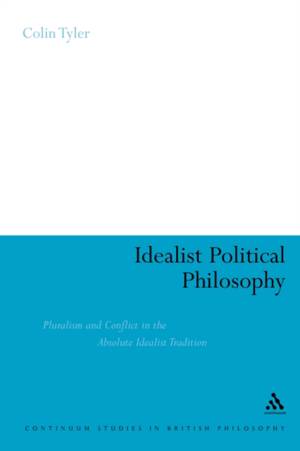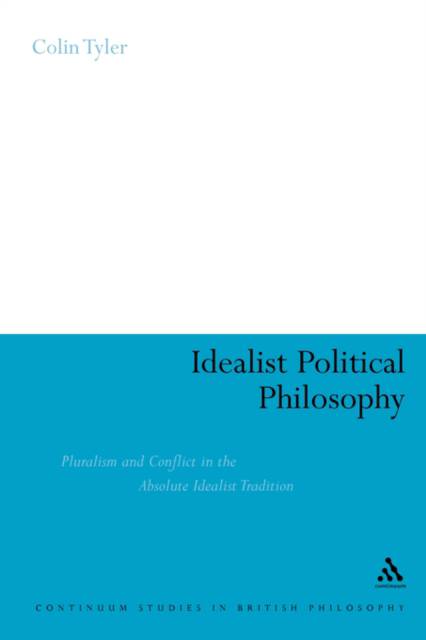
Je cadeautjes zeker op tijd in huis hebben voor de feestdagen? Kom langs in onze winkels en vind het perfecte geschenk!
- Afhalen na 1 uur in een winkel met voorraad
- Gratis thuislevering in België vanaf € 30
- Ruim aanbod met 7 miljoen producten
Je cadeautjes zeker op tijd in huis hebben voor de feestdagen? Kom langs in onze winkels en vind het perfecte geschenk!
- Afhalen na 1 uur in een winkel met voorraad
- Gratis thuislevering in België vanaf € 30
- Ruim aanbod met 7 miljoen producten
Zoeken
€ 88,45
+ 176 punten
Omschrijving
The central claim of this book is that previous scholars have not appreciated the depths and complexities of the relationships between British idealist radicalism and the earlier idealist tradition of Kant, Fichte, Hegel and Carlyle. Colin Tyler explores two recurring themes: the first is that the foundations of British idealist thought were encapsulated within parts of Hegel's political theory that have been ignored or misunderstood -- specifically Hegel's analyses of civic pluralism and international order. Tyler argues that these parts of Hegel's system had highly significant political implications. They showed that reformers must work from within concrete historical traditions; they grounded a critique of abstract rationalism as an alienating and potentially totalitarian method of designing social and economic institutions; they indicated the inevitability of civic and political pluralism and the many opportunities for human improvement which they created; and finally they demonstrated the tragic nature of human progress. The second recurring theme is the concern of many British idealists to articulate the distinction between the virtues of an enriching community and a modern commercial society, a concern that owed much of its force to the earlier idealist tradition. Together, these themes show the inseparability of the British idealists' social and political radicalism from the inherent logic of idealism, a link that has been denied or misconceived by previous scholars, and has never been completely appreciated by anyone before. The book makes extensive use of certain British idealist manuscripts which were not merely unpublished, but were undiscovered until very recently.
Specificaties
Betrokkenen
- Auteur(s):
- Uitgeverij:
Inhoud
- Aantal bladzijden:
- 232
- Taal:
- Engels
- Reeks:
Eigenschappen
- Productcode (EAN):
- 9780826446831
- Verschijningsdatum:
- 1/03/2010
- Uitvoering:
- Paperback
- Formaat:
- Trade paperback (VS)
- Afmetingen:
- 156 mm x 234 mm
- Gewicht:
- 331 g

Alleen bij Standaard Boekhandel
+ 176 punten op je klantenkaart van Standaard Boekhandel
Beoordelingen
We publiceren alleen reviews die voldoen aan de voorwaarden voor reviews. Bekijk onze voorwaarden voor reviews.









